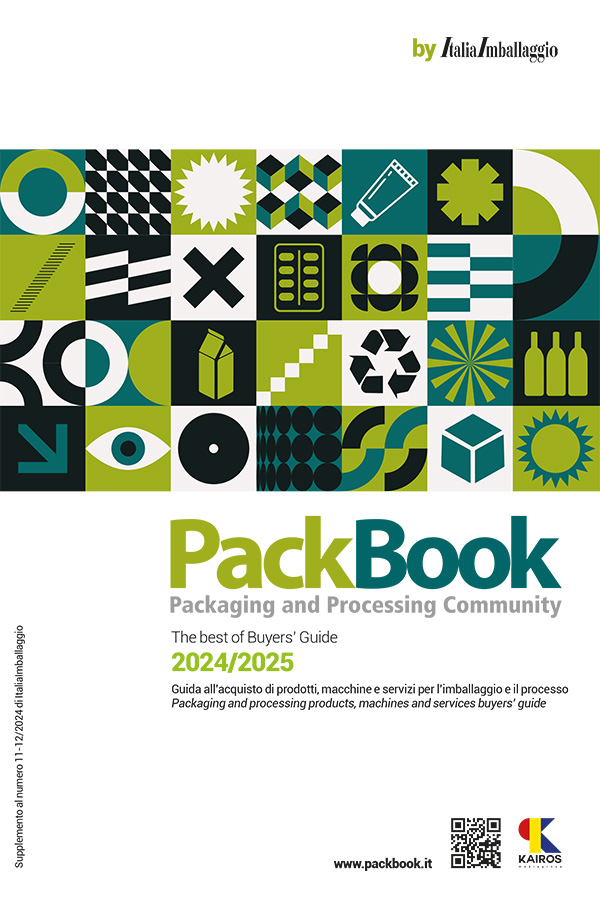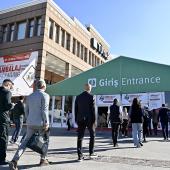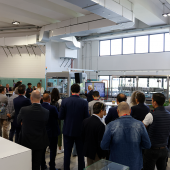Capital goods: experiencing change as an opportunity
In a world where the only certainty is uncertainty, great anticipation and foresight is required to identify trends in the near future. Organised by SBS, the “Megatrends 2030 - Economic and Global Scenarios in the Capital Goods Supply Chain” conference on 29 November not only explored emerging macro-trends but also introduced the first Executive Programme “General Management in the Capital Goods Supply Chain”.
By Milena Bernardi

Identifying macro-trends, i.e. those forces of change that have not yet established themselves as such but could well emerge as such, is a complex endeavour, especially in a context where everything seems changeable and elusive.
One would probably need a crystal ball to predict what other events will shape the future of the world economy and geopolitics. However, relying on facts, monitoring them consistently over time, and making appropriate evaluations seems objectively the most sensible, if not the only viable solution. But one thing now seems certain: change always presents opportunities and, in the business arena, whoever arrives first makes the difference.
At the Megatrends 2030 conference, held on 29 November at Villa Marchetti, the operational headquarters of Acimac, Amaplast and Ucima, an attempt was made to do just that: to pinpoint any ‘anomalies’, or rather weak yet surprising signs, in order to anticipate the macro-trends that will shape the near future.
The event was organised by SBS (Scuola Beni Strumentali) in partnership with Sistemi Formativi (training systems) of Confindustria and presented to an audience of general managers the scenarios of prospective developments in capital goods at both macro and supply chain level.
Megatrends 2030 - Economic and Global Scenarios of the Capital Goods Supply Chain”
29 November 2022, Villa Marchetti
The event was introduced by Mario Maggiani, General Manager of Acimac/Amaplast/Ucima, and Riccardo Cavanna, Chairman of Ucima representing Acimac/Amaplast/Ucima, as well as Luigi Serra, Chairman of SFC Sistemi Formativi Confindustria, Riccardo Comerio, Chairman of LIUC Cattaneo University and Luigi Abete, Chairman of Luiss Business School.
During the conference, Gian Paolo Crasta, Executive Director of Acimac/Amaplast/Ucima, and Paola Brusiani, Head of SBS, presented the first Executive Program “General Management in the Instrumental Goods Supply Chain”, a project desired by the three trade associations together with Confindustria, which envisages a partnership between SBS - Scuola Beni Strumentali (the training body of Acimac, Amaplast and Ucima) and SFC, and the collaboration of two of the most prestigious high schools in Italy: LIUC Business School and Luiss Business School.
Where do we start?
In his speech, Professor Enzo Peruffo (Luiss Business School) outlined 6 macro-themes that will condition change with reasonable certainty, starting with the growing population (+26% in 2050) and the growing number of people migrating and moving to cities (by 2050, 68% of the population will live in an urban centre) but, above all, subject to progressive ageing.
The implications of this trend are easy to imagine: greater attention to providing health and medical care, research for new drugs, personal care, changes in consumption, pressure on already scarce natural resources, a rethinking of mobility and space in cities.
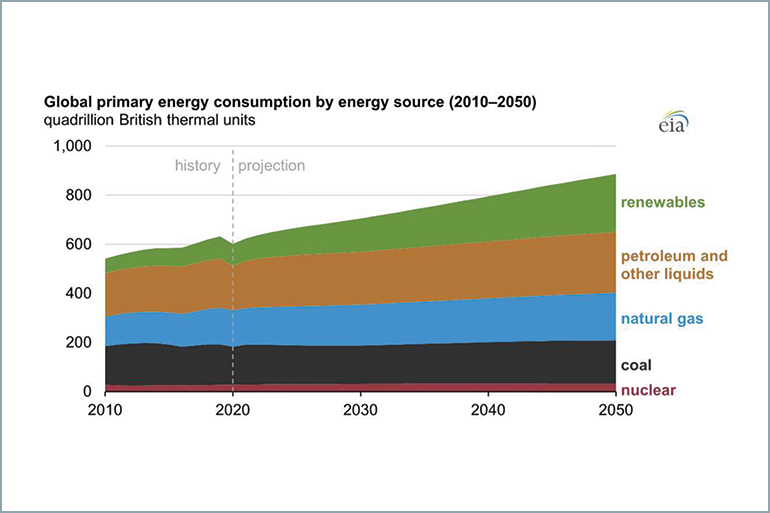
Other issues to be closely monitored are climate change (CO2 control and ESG investments) and environmental degradation, as well as the increasing competition for resources such as water, food and energy whose demand will grow by 55, 60 and 47% respectively by 2050 with renewables making up 27% of the global energy mix.
Alongside the digital transition that is already largely underway (almost no business today is run without digital technologies), life in the metaverse is also taking shape, and is expected, according to Bloomberg research, to reach a global value of USD 800 billion in 2024. At the same time, global shifts in economic power predict that China is likely to have the largest economy by 2030, overtaking the United States, and that by 2050 India’s GDP will be twice that of the euro area.
The disruption of supply chains, geopolitical tensions, lifestyles (sharing economy) and emerging work models are further important clusters for intercepting those needs that trigger the drive for change, redefining behaviour, sociality, consumption, finance and lifestyles.
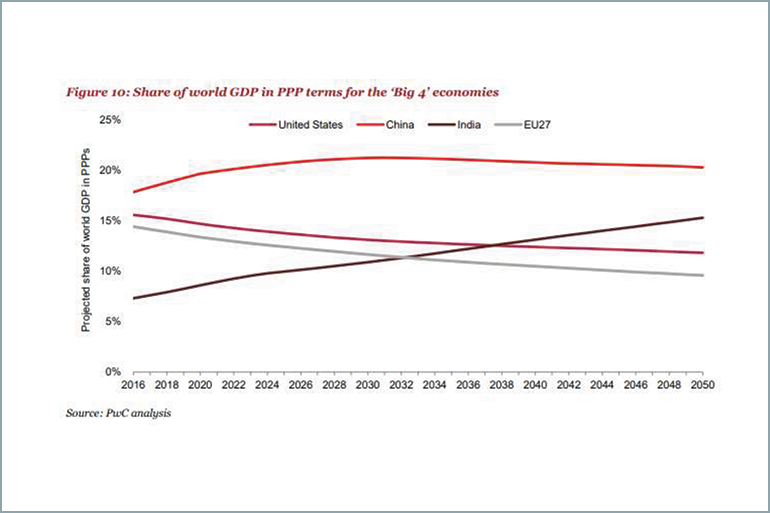
How to make business evolve in the capital goods sector
Andrea Venegoni, full professor at LIUC Business School, emphasised the strategies to be adopted in the light of the current market context: slowing globalisation, liquidity everywhere, enterprise loan rates at an all-time low, greater mobility in the labour market, productivity (reduced margins) and supply chain tensions.
In the face of increasingly fierce price competition and the geographical shift in demand, the key competitive lever is to increase the range of customised customer services that constitute real added value applied to machinery technology.
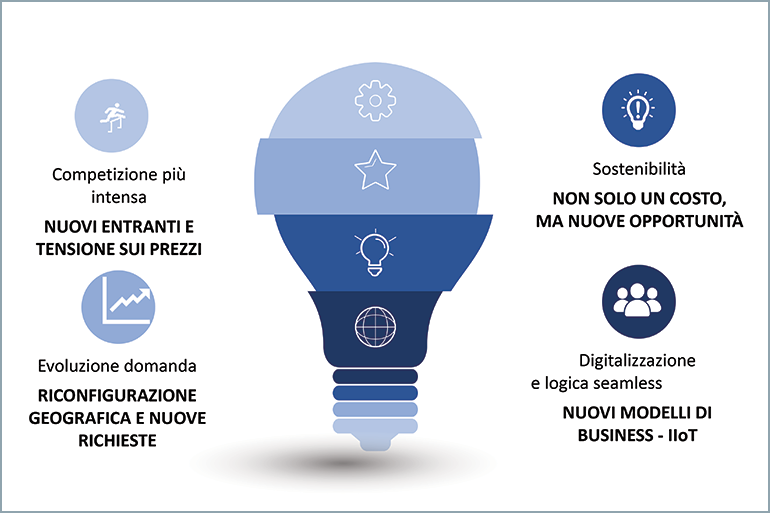
Sustainability is another competitive/strategic factor to focus on to create new development opportunities, in addition to digitalisation which requires building a network, deciding with whom to collaborate, which processes to internalise and which to delegate to subcontractors or partners.
This scenario shows the importance of having an “evolved” management to fuel the best decisions and to increase labour productivity to recover margins. The use of IoT technology and supply chain consolidation are other key drivers that are crucial to maximise results.
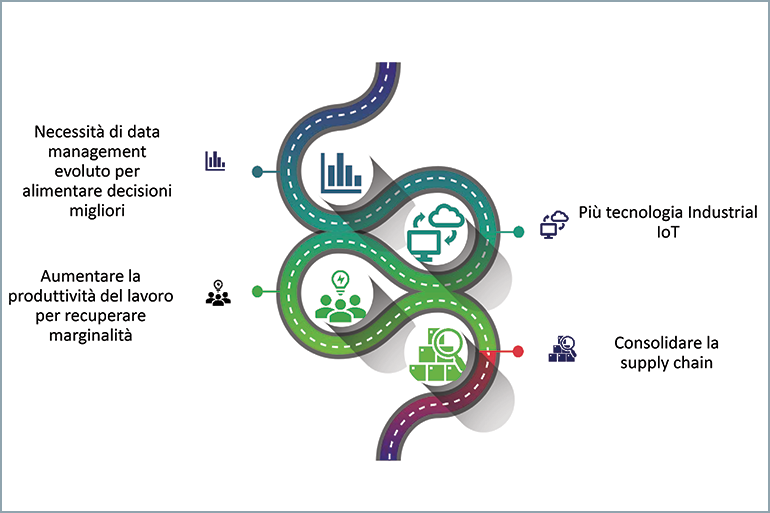
4-voice round table
During the round table moderated by Ilaria Visentini (Sole 24 ore and CEO of Mecs), experts from the university, association and entrepreneurial worlds discussed strategies and expectations for the coming years, starting from the world of finance. Riccardo Corradori, CEO of the TeamSystem Financial Value Chain group and President of TeamSystem Capital at Work SGR, illustrated the offerings of credit institutions and fintech companies. Simona Caselli, Commercial Director CCFS and Head of Business Europe Legacoop, introduced the topic of EU regulations on packaging and the Reuse-oriented Directive, calling for policies aimed at sustainability within the supply chain. A key issue addressed by Caselli is that of bioplastics, a step that absolutely must be taken, while being careful not to fall into the trap “plastic no at any cost” because “less plastic = more waste in food”.
A snapshot of the personal mobility sector was offered by Rolando D’arco, CEO & General Manager of Leasys, who described the evolution of needs in the automotive field: focus on use and no longer on vehicle ownership, electric aircraft for more sustainable mobility, etc. Finally, Francesco Raschi, SEA Aeroporti of Limano Director of Cargo & Real Estate, highlighted the developments in logistics in Italy, focusing in particular on air transport.
Executive Programme “General Management in the Capital Goods Supply Chain”
This programme of excellence is aimed at training future managers and entrepreneurs, second-generation owners and career development figures, capable of contributing to the success of companies that operate in high-tech sectors such as capital goods and are increasingly oriented towards innovation, internationalisation and digitalisation.
Training will be divided into 8 modules and a total of 122 hours: in presence (in the premises of SBS in Modena, the LIUC Business School in Castellanza (Varese) and the Luiss Business School in Milan), synchronous online and asynchronous FAD (i.e. usable at any time).
Through an organic and transversal vision of the enterprise system, managers will develop the ability to analyse, diagnose and solve corporate management problems from an international perspective. The course will start in February 2023.
